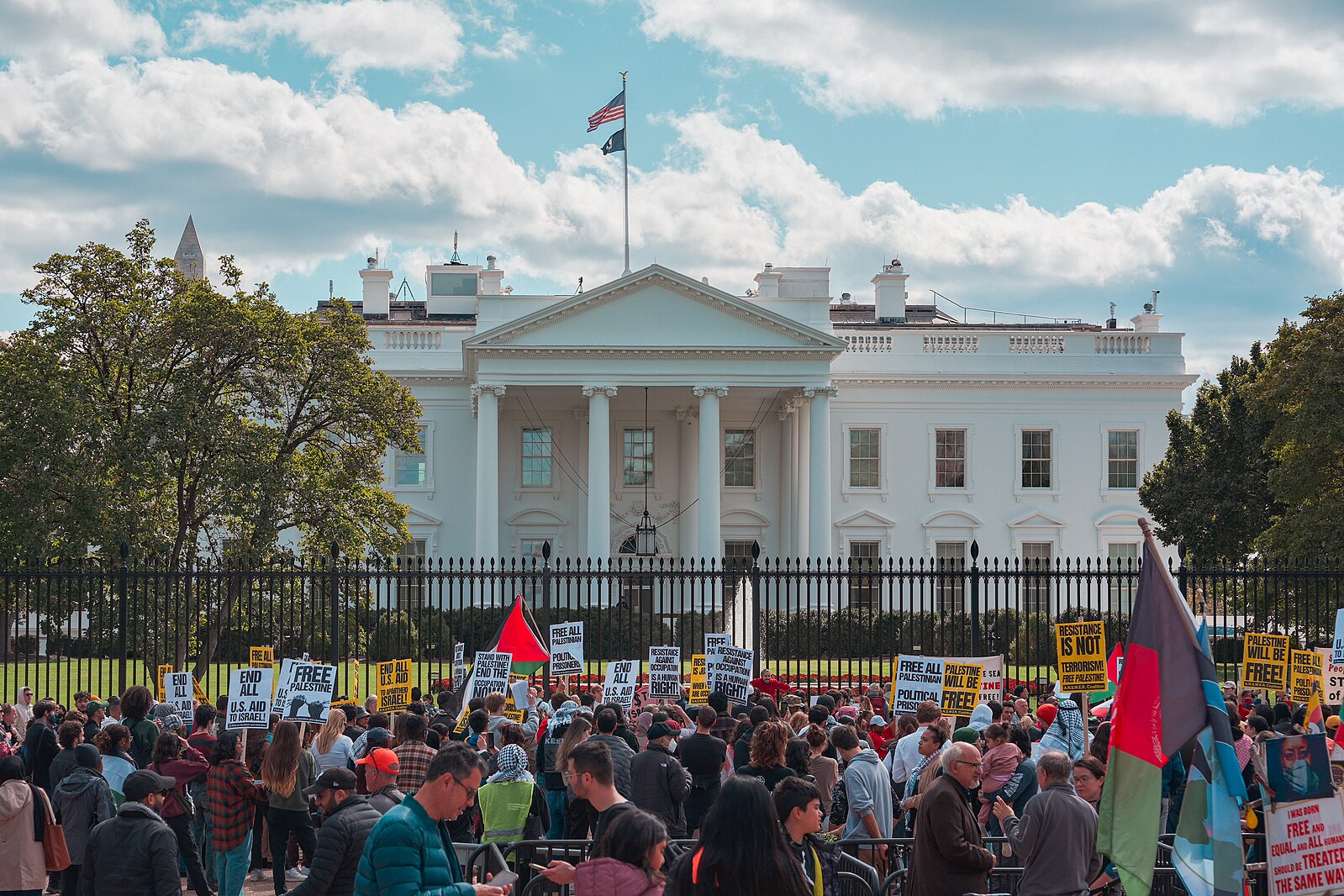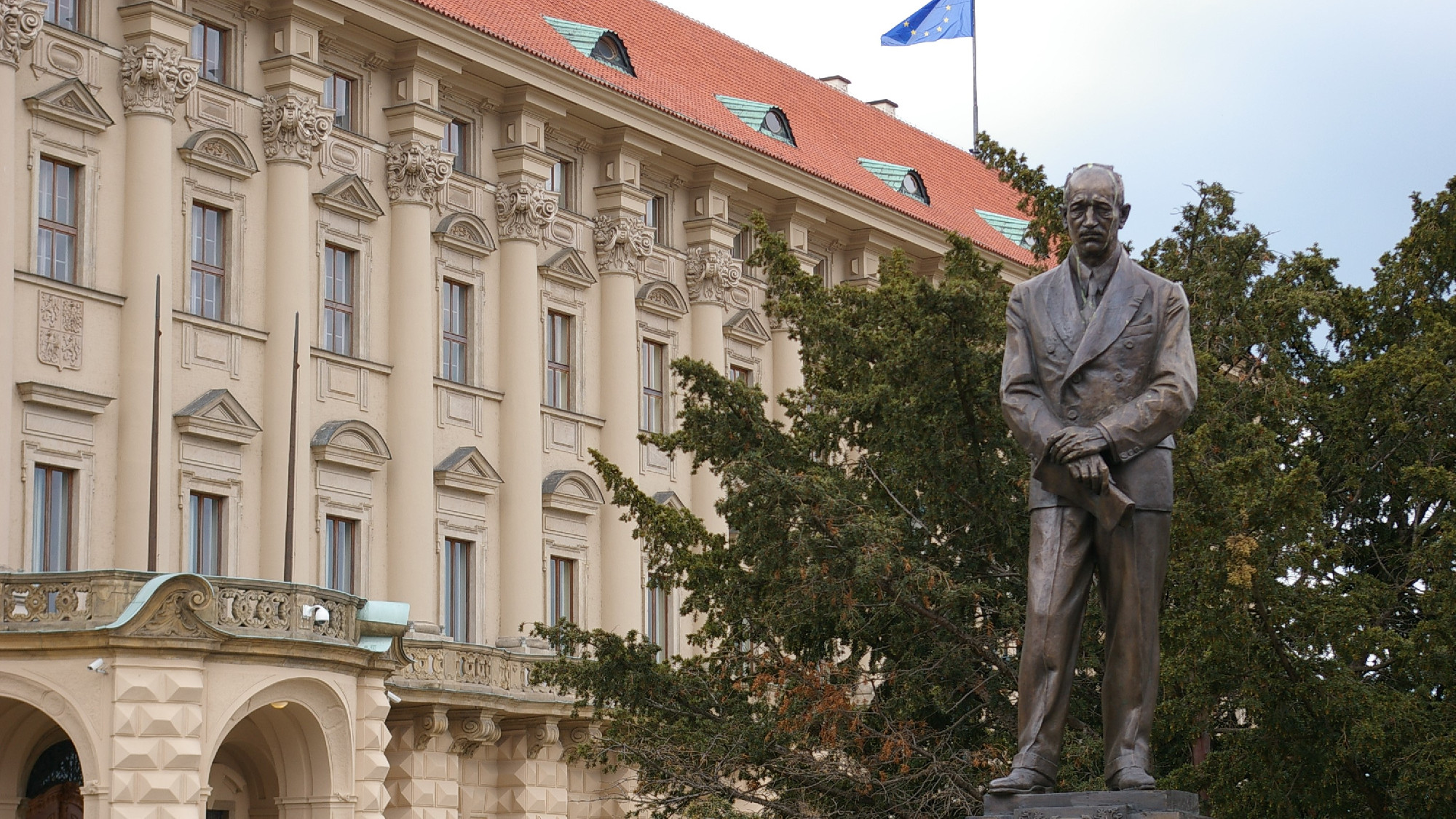In some respects, the United States has so far delivered what the overwhelmingly pro-Israel public expected: Biden himself visited Israel immediately, and his senior officials (Secretary of State Antony Blinken and Secretary of Defence Lloyd Austin) have visited neighbouring countries as well, all stressing the right of the Jewish state to defend itself. The administration has accelerated US-Israeli arms shipments, proposes $14.3 billion in military aid and nearly $9 billion in humanitarian aid in Congress, and sought to deter other regional actors (notably Iran and Hezbollah) from entering the conflict.
Nevertheless, President Biden’s pro-Israel policy has its limits, drawn as they are by his domestic base. Put simply, the same set of problems that the Republicans are associated with concerning Ukraine also exists among Democrats with regard to Israel. Just as the Trumpist-populist wing of the Republican Party is opposed to the unbounded transfer of American military and especially economic funds to the Eastern European country, so the leftist-progressive wing of the Democratic Party is not enthused by the military support for the Jewish state, especially in the light of the operations on Gaza.
 Pro-Palestine Rally Austin, Texas, 8 November 2023
Pro-Palestine Rally Austin, Texas, 8 November 2023Progressive Ideological Links
There is no consensus among political analysts on how to label Biden’s social, economic and foreign policy. On the one hand, Biden himself is seen as a moderate in a Democratic Party that cannot field another, more widely electable candidate in the next presidential election. On the other hand, the Democratic Party has shifted to the left in recent years, and although progressive forces have limited influence in the White House, the president has ultimately embraced some of their agenda (including policies advancing equity for minorities, energy policy geared to the green transition, health care subsidies, immigration policy, and upscaling the federal state). However, the Biden foreign policy team is largely made up of Obama-era carry-over officials who are more mainstream liberal internationalists than leftist or progressive internationalists. Biden’s foreign policy is therefore occasionally criticized by progressives, as was the case with Israel in the early months of the Biden administration: in May 2021, Hamas launched thousands of rockets on Israel, and though the country enjoyed the “unwavering” political and military support of the White House, according to National Security Advisor Jake Sullivan, protests by progressive Democrats could not be downplayed.
While both the American political elite and society as a whole can be said to be pro-Israel, the members and voters of the Democratic Party are less and less so. Over the past two decades, Israel has become a marked fault line between Republicans and Democrats: according to a 2018 Pew Research Center survey, between 2001 and 2018, the share of Republicans sympathizing more with Israel than the Palestinians increased from 50 to 79 percent (with sympathy for Palestinians decreasing from 15 to 6 percent), while Democrats’ pro-Israel sympathy decreased from 38 to 27 percent (with sympathy for Palestinians increasing from 21 to 25 percent). Pro-Israel sentiment was strong mainly among white evangelical Protestants and those aged 50 and over, while religiously unaffiliated and youths and students aged 18–29 sympathized more with the Palestinians (although support for Israel was stronger among these two groups overall). The Pew Research Center confirmed these trends in 2022, with conservatives and those 65 and above having a favourable (75 and 69 percent respectively), while liberals and those between 18–29 having an unfavourable view (62 and 56 percent respectively).

There are three factors behind the criticism levelled by young and progressive Democrats. First, since the 2014 Palestinian-Jewish conflict, people have increasingly turned to online social media for their information, which was often incomplete and misleading and tended to reinforce the Palestinian reading among young people: the casualty “numbers war”, for example, shows a striking disproportion in the violent deaths of civilians, without regard to warnings by Israeli forces before air strikes or Hamas hiding behind Palestinian civilians, prohibited by the Geneva Conventions. Second, the Palestinian narrative coincides with the narrative of racial oppression. After its successes in the 1967 and 1973 wars, Israel emerged as a militarily powerful country in the eyes of the American left, and the role of “victim” fit the Palestinians better, whose cause could be linked to the struggle for equality of African Americans. The link between the two minority movements has grown particularly strong over the past decade: in 2012, 17-year-old Trayvon Martin was the fatal victim of gun violence in Florida, which sparked the Black Lives Matter movement, whose followers issued a statement in 2016 demanding an end to violence and injustice against African Americans and also denounced “the systemic violence at the core of the Israeli settler colony” and its US support. The mutual sympathy between the two movements has been demonstrated on several occasions, including Palestinian flags at BLM protests in 2020 and George Floyd commemorations in Gaza. Third, ideological sympathies have been underscored by domestic political realities, radical progressive forces being the counter-pole to nationalist-populist forces. The former are upset by some of Benjamin Netanyahu’s home policies but are particularly irritated by his political alliance with Donald J. Trump. In addition, the former US president is an excellent target for Palestinian advocacy, as the Trump administration pursued spectacularly pro-Israel policies, including the recognition of Israeli control over the Golan Heights, the relocation of the US embassy to Jerusalem and the withdrawal of US aid to Gaza. Accordingly, in the progressive Democrat worldview, US support for Israel is difficult or conditional.
Conceptual Debates on Foreign Policy
The issue of support for Israel could be a litmus test for US foreign policy in the coming years, as it could sharpen the struggle between the conservative and the progressive variants of internationalism. For decades, US foreign policy (for all its realism) has followed the logic of liberal internationalism, adhering to the international institutional system established after the world wars and free trade, which simultaneously ensured US hegemony. The Trump administration gave us a taste of conservative internationalism, characterized by the reforms of international institutions and trade along US national interests and a pronounced but territorially focused use of US military force. For Israel, this meant two things: first, a Washington that continued to see the Jewish state as a special ally because it believes that a Christian West owes this to the Jewry after the Holocaust; second, a Washington that needed it as a bridgehead of the community of democratic countries in the Middle East, which requires stability, not the propagation of political-ideological values, and Washington therefore forged political alliances in the region, underpinned by defence cooperation, on the basis of geopolitical considerations. All this led to the Trump administration's confrontational policy on Iran and the conclusion of agreements to normalize relations between Israel and the Sunni Arab world (the Abraham Accords), to the deliberate exclusion of the Palestinian question.
 Pro-Palestine rally in Brooklyn, New York, on 28 October 2023
Pro-Palestine rally in Brooklyn, New York, on 28 October 2023
In contrast, a fundamental tenet of American progressive internationalism is that the US government should make economic justice and socially inclusive democracy its main priority rather than free trade, and that international conflicts should be resolved not by military means but (as with domestic problems) by solving local socio-economic problems. The domestic and international spheres are therefore inseparable: the values of freedom and equality are universally valid, and the United States must pursue an inclusive foreign policy through international organizations rather than national self-interest, with a particular focus on supporting groups suffering economic and social oppression. For Israel, this would mean a Washington that is restrained not only in its activism but also in its political goodwill, with which a side deal is difficult to strike. Unlike its conservative counterpart, progressive internationalism has no strong historical tradition in the US, but its political impact should not be underestimated: progressives have gained influence on domestic (economic and social) issues with serious foreign policy implications, as already evident in President Obama’s foreign policy (for example, the Iran nuclear deal). At present, almost all presidential candidates are clearly pro-Israel, and President Biden is no exception, but his room for manoeuvre as compared to his rivals is limited: the progressive minority rejects the conservative concept of the Abraham Accords, calls for a rapprochement with Iran and gestures to the Palestinians. The reality of US domestic politics is that the two major parties are forced to build broad coalitions, so in 2024 President Biden may well have young and progressive voters demanding a foreign policy portfolio in return for their support. So far, the latter has been the bastion of the mainstream liberal line: foreign and security policy officials continue to come from the professional and political workshops of liberal internationalism and counterbalance alternative trends in the administration, as National Security Council infighting under President Trump demonstrated. As the progressive tendency is likewise resisted here, the influence of the radical line of the Democratic Party is ultimately a no-win situation: it would not be enough to bring about a left-wing foreign policy revolution, but it would be enough to make the president’s daily life miserable, as President Biden can now testify.
The author is a fellow of the Institute for American Studies at National University of Public Services, Budapest
Translated by Péter Pásztor
Opening picture: ,,Resistance is not terrorism!" – pro-Palestine rally outside the White House on 8 October 2023




